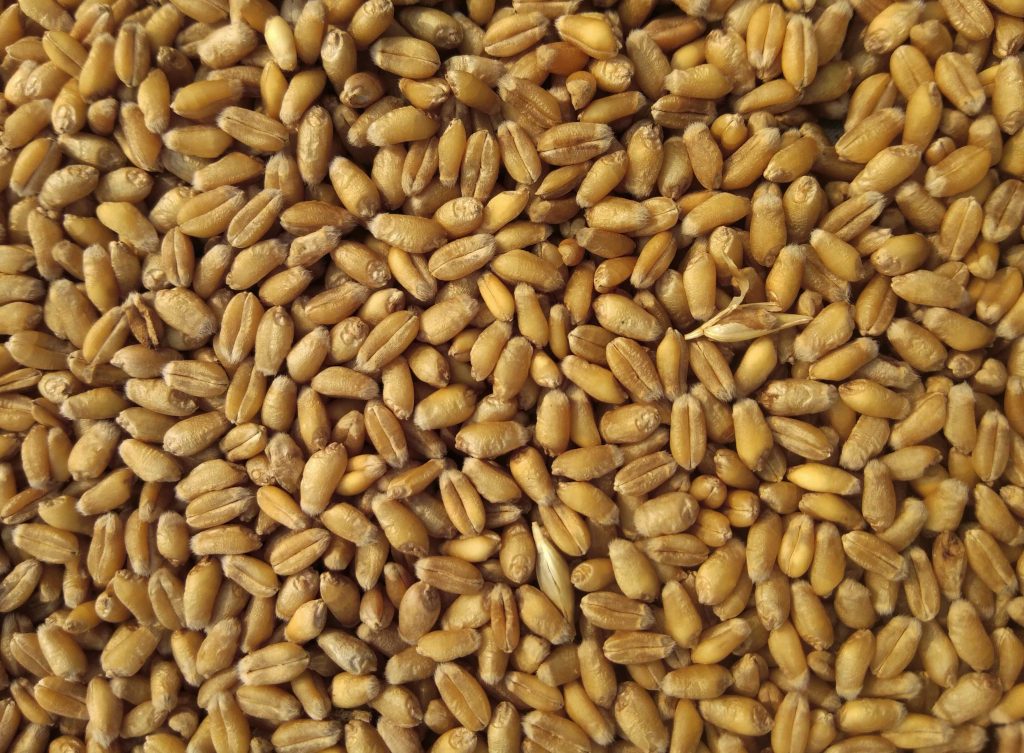
John the Baptist had many calls for heartfelt repentance. He has already told us that the One to come is far more powerful. He has already mentioned that Messiah’s status is so lofty that he doesn’t consider himself even worthy to be the lowest of slaves in His household. Now John says of the One to come, “His winnowing fork is in his hand, and he will clear his threshing floor…”
The Lexham Bible Dictionary tells us that the steps in ancient grain production were:
1. Plowing (1 Sam 11:5; Isa 2:4; Joel 3:10)
2. Planting (Gen 26:12; Deut 22:9; Jer 50:16)
3. Harvesting (Deut 6:19; Jer 50:16; Joel 3:13)
4. Stacking stalks in sheaves (Gen 37:7; Ruth 2:7, 15; Zech 12:6)
5. Transporting sheaves to the threshing floor (Amos 2:13; Mic 4:2)
6. Threshing (Deut 25:4; Judg 6:11; 2 Sam 24:16–25)
7. Winnowing (Exod 15:7; Job 13:25; Isa 30:24)
8. Sifting (Amos 9:9; Luke 22:31)
9. Milling (Gen 18:6), parching (2 Sam 17:28), or storing (Joel 1:17)
To clear the threshing floor was necessary after sifting. The farmer threshed the grain by lashing it with flails or leading animals to repeatedly step on it, often pulling a heavy sledge in a processes reminiscent of steamrolling. This separated out the grain from the chaff, and by using a winnowing fork to toss the resultant mass into the air, the gain would separate out, falling straight down while the chaff and straw would be blown downwind. Once the chaff was separated out, the grain lay all over the threshing floor, and prior to processing for food it had to be cleaned up. The farmer or their assistants would sweep it all up and put in baskets or jars so that none of it would be lost.
It was all a very laborious process, but absolutely necessary. Straw and chaff are inedible, and grain sold without adequate separation was therefore useless and unprofitable. Inversely, grain was very valuable, so none of it would be wasted – the threshing floor was never left partially covered in grain. Wise farmers gathered all of it, and Christ is the very epitome of a wise farmer. To that point John uses a word for ‘clear’ that implies ‘to completely empty’. As the NASB better puts it, “He will thoroughly clear His threshing floor.”
You may think that you haven’t gathered so much, and that your spiritual fruitfulness is far too small to cover God’s threshing floor. You may even think for a moment that what little fruit you have is so small as to be lost in the hurry of the harvest. But Christ will thoroughly clear His threshing floor, and nothing will be lost. All of the fruitfulness that genuine repentance produces will be counted – every last act and every witness of His Name.
Fear not, even a cup of cold water given in His Name will earn a reward in glory.
A farmer does not wrest the plant from the seed. He sows the seed and leaves the result to God. If God’s people are fait
HH Hobbs
APPLICATION: Thankfulness
Thank God that He who knows the number of hairs on your head also knows what you have done for His Name. Meditate on Hebrews 6:10, “God is not unjust; he will not forget your work and the love you have shown him as you have helped his people and continue to help them.”

